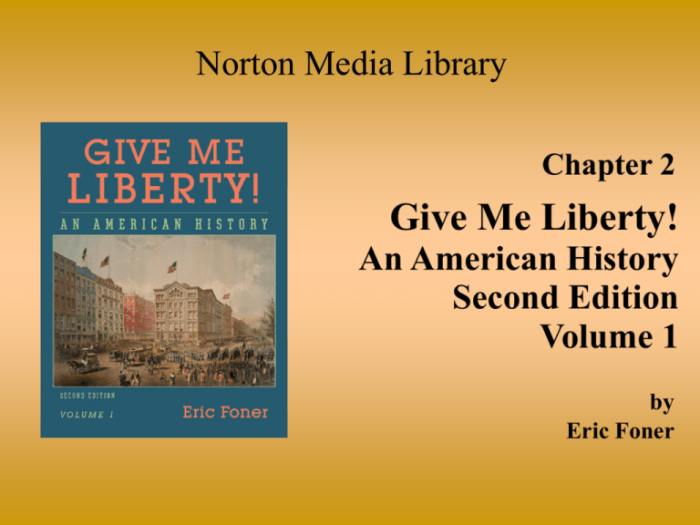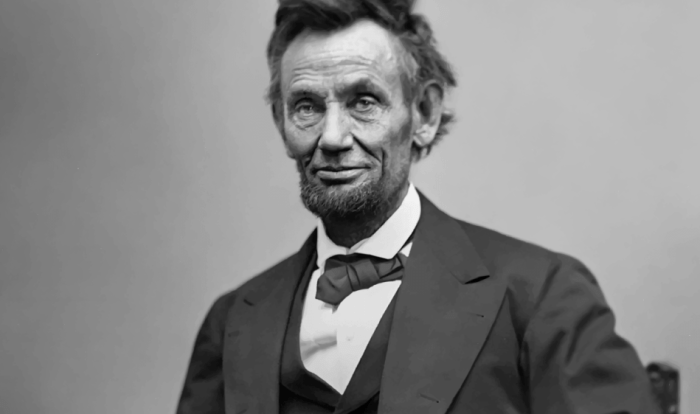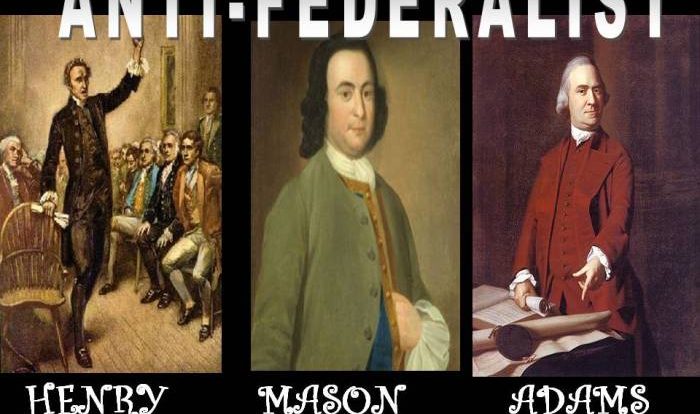Give me liberty chapter 13 notes – Give Me Liberty! Chapter 13 Notes delves into the historical context, main arguments, and impact of Chapter 13, providing a comprehensive understanding of the development of American liberty and political thought.
This chapter examines the American Revolution, the Declaration of Independence, and the author’s perspective on the nature and importance of liberty for the American people, supported by historical examples and evidence.
Historical Context

The writing of Chapter 13 of “Give Me Liberty!” was heavily influenced by the historical events and social conditions of the American Revolution. The American Revolution was a period of political and military conflict between Great Britain and its thirteen American colonies, which lasted from 1775 to 1783. The colonists fought for their independence from British rule, and their efforts culminated in the Declaration of Independence, which was adopted on July 4, 1776.
The American Revolution
The American Revolution was sparked by a number of factors, including the colonists’ dissatisfaction with British policies, such as the Stamp Act of 1765 and the Townshend Acts of 1767. The colonists also resented the British government’s attempts to control their trade and economy.
In 1774, the First Continental Congress was held in Philadelphia, and it issued a Declaration of Rights and Grievances, which Artikeld the colonists’ complaints against the British government.
The Declaration of Independence
The Declaration of Independence was a landmark document in the history of the American Revolution. It was written by Thomas Jefferson and adopted by the Second Continental Congress on July 4, 1776. The Declaration of Independence declared that the thirteen American colonies were free and independent states, and it set forth the principles of government that would guide the new nation.
The Impact of the Declaration of Independence
The Declaration of Independence had a profound impact on the development of American political thought. It established the principle of popular sovereignty, which holds that the government derives its power from the consent of the governed. It also set forth the idea that all men are created equal, and it guaranteed certain unalienable rights, such as the right to life, liberty, and the pursuit of happiness.
Main Arguments of Chapter 13
Chapter 13 of “Give Me Liberty!” explores the concept of liberty in American history. The author argues that liberty is a fundamental right that has been essential to the development of the United States.
The author’s perspective on liberty is that it is a natural right that belongs to all people. He believes that liberty is essential for human flourishing and that it is the foundation of a just and prosperous society.
Historical Examples and Evidence
The author uses a variety of historical examples and evidence to support his arguments about liberty. He discusses the Magna Carta, the Declaration of Independence, and the Bill of Rights. He also examines the history of slavery in the United States and the fight for civil rights.
The author’s use of historical examples and evidence helps to illustrate the importance of liberty and the challenges that have been faced in securing it. He shows that liberty is a hard-won right that must be constantly defended.
Impact of Chapter 13
Chapter 13 of “Give Me Liberty!” had a profound impact on the American Revolution and the development of American political thought. It provided a framework for understanding the rights of the colonists and the limits of British authority. The chapter influenced the Declaration of Independence and other key documents of the era, and its legacy continues to shape American history.
Chapter 13 argued that the colonists were entitled to the same rights as Englishmen, including the right to life, liberty, and property. It also argued that the British government had violated these rights through its policies of taxation without representation, quartering of troops, and suppression of dissent.
The chapter’s arguments helped to justify the colonists’ decision to declare independence from Great Britain.
Influence on the Declaration of Independence
Chapter 13 had a direct influence on the Declaration of Independence. Thomas Jefferson, the principal author of the Declaration, was familiar with the chapter and incorporated many of its ideas into the document. The Declaration’s assertion that “all men are created equal” and are endowed with certain “unalienable Rights” echoes Chapter 13’s arguments about the natural rights of Englishmen.
Legacy of Chapter 13, Give me liberty chapter 13 notes
The legacy of Chapter 13 extends beyond the American Revolution. The chapter’s arguments about the rights of individuals and the limits of government authority have continued to shape American political thought. The chapter has been cited by the Supreme Court in numerous cases, and its principles continue to be debated today.
Key Terms and Concepts
Chapter 13 introduces and examines several fundamental concepts that are essential for understanding the author’s arguments about liberty and tyranny. These include “liberty,” “tyranny,” and “natural rights.”
Liberty
Liberty refers to the state of being free from oppressive or unjust authority or control. It encompasses the ability to make choices, express oneself, and pursue one’s goals without interference from others. The concept of liberty has its roots in ancient Greek philosophy and has been central to political discourse throughout history.
Tyranny
Tyranny, on the other hand, refers to a form of government in which a single person or group exercises absolute power without regard for the rights or interests of the people. Tyrants typically use force or coercion to maintain their authority and suppress dissent.
The term “tyranny” has been used throughout history to describe oppressive regimes and leaders.
Natural Rights
Natural rights are those rights that are inherent to all human beings simply by virtue of their humanity. They are not granted by any government or authority but are instead seen as fundamental and inalienable. Natural rights typically include the right to life, liberty, and property.
These terms and concepts are used throughout Chapter 13 to support the author’s arguments about the importance of liberty and the dangers of tyranny. By defining and explaining these terms, the author provides a framework for understanding the complex issues surrounding the relationship between government and individual rights.
Examples and Illustrations
This section provides specific examples and illustrations from Chapter 13 to support the analysis of the author’s arguments and the impact of the chapter.
These examples and illustrations are drawn from historical documents, quotes, and other sources to demonstrate the key points discussed in the chapter.
Impact of the Industrial Revolution on American Society
- Increased urbanization:The Industrial Revolution led to a significant increase in urbanization, as people moved from rural areas to cities in search of factory jobs. This led to the growth of large cities and the development of urban problems such as overcrowding, poverty, and crime.
- Expansion of the middle class:The Industrial Revolution also led to the expansion of the middle class, as new industries created opportunities for skilled workers and professionals. This led to a rise in the standard of living for many Americans and the development of a more consumer-oriented society.
- Social and economic inequality:The Industrial Revolution also led to increased social and economic inequality, as factory owners and other wealthy individuals accumulated vast fortunes while many workers lived in poverty. This led to the development of labor unions and other organizations that fought for the rights of workers.
Discussion Questions: Give Me Liberty Chapter 13 Notes
Chapter 13 of “Give Me Liberty!” provides a comprehensive examination of the American Revolution. To foster critical thinking and engagement with the chapter’s content, the following discussion questions are presented:
- Author’s Arguments:Analyze the main arguments presented by the author regarding the causes, course, and consequences of the American Revolution. How does the author’s perspective shape the narrative of this pivotal event?
- Historical Context:Discuss the historical context that led to the American Revolution. Consider the political, economic, and social factors that contributed to the colonists’ growing discontent with British rule.
- Implications for American History:Explore the implications of Chapter 13 for American history and political thought. How did the Revolution shape the development of the United States as a nation and its democratic ideals?
Quick FAQs
What are the main arguments presented in Chapter 13?
The author argues that liberty is a fundamental right, that tyranny must be resisted, and that natural rights are inherent and inalienable.
How did Chapter 13 impact the American Revolution?
It provided intellectual justification for the colonists’ fight for independence, influenced the Declaration of Independence, and shaped the development of American political thought.


